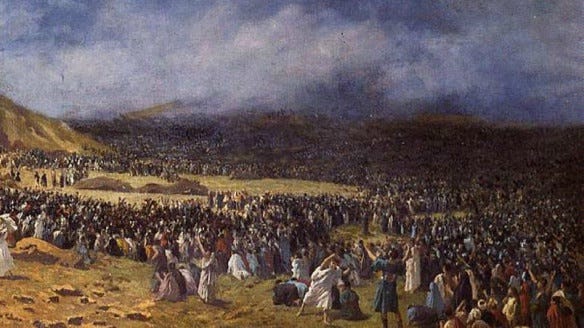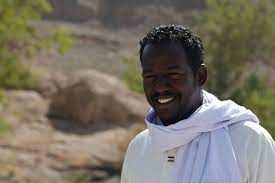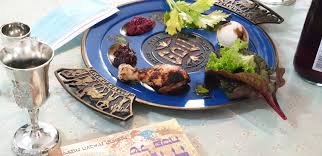Rosh Chodesh Nisan would seem a propitious time for a Kiddush Hashem. And one occurred this year, when a large group of Israeli anti-government protesters, mostly secular citizens aiming to “get in the face” of religious Jews, descended on Bnei Brak.
They likely wanted to express their anger at the fact that religious parties are part of the government coalition whose plans outrage them, but also to stoke locals’ anger in return. Many protesters wore helmets in anticipation of barrages of rocks or eggs. None, though, materialized, only a handful of young people who shot off harmless fireworks.
What did happen, though, was that some local residents set up food and drink stands, offering the protesters cholent, cookies and bottles of water, which many of the visitors gratefully accepted.
And, in one widely circulated (I prefer to avoid the word “viral” these days) video clip, some of the demonstrators seemed moved when the niggun “Sholem Aleichem” was played on loudspeakers. One older man was filmed taking off his helmet to wipe tears from his eyes as he mouthed along with the Shabbos night welcoming of malachei hashareis. Another protester excitedly accepted a sefer Torah from a resident and danced with it.
A resident who filmed videos of the unexpected happenings said that the man who removed his helmet and wept looked at her and said, “My father had love for every Jew and wanted everyone to be united. My father would roll over in his grave if he could see the hatred and conflicts among us.”
There are, to be sure and tragically, people who are so hardened in their secularism that they may seem impervious to reconsidering assumptions about Torah or those dedicated to it.
But the pinteleh Yid is always there, ready to be awoken.
After the Torah recounts the question that the Haggadah attributes to the rasha, it describes our ancestors as bowing down in thanksgiving about, Rashi says, the “news of the children.”
The Sheim MiShmuel, quoted in Eliyhu Ki Tov’s Haggadah, explains that, while resha’im in Mitzrayim perished, after yetzias Mitzrayim our ancestors were given the news that all of their descendants – no matter their actions as individuals – would still be part of the Klal. And that was what spurred their display of gratitude.
And the import of that news is that, no matter how far from their spiritual roots Jews wander, there is always a possibility of them finding – as so many have – a path home.
The seder is a particularly powerful puller of Jewish souls. Its memory is indelibly etched in many a less observant Jew’s soul.
My father, a”h, served as rov of a shul attended by both observant and non–observant Jews. One day a man came to Shacharis – to say Kaddish for a yahrtzeit – one of the few occasions we ever saw him – and received an aliyah.
He haltingly recited the brachah on the Torah but after “Asher bachar banu…” he hesitated. Then “mikol…” Then, to my immature amusement, “…haleylos shebechol haleylos anu ochlim…”
He was quickly corrected. But I realized that the man had just revealed that, distant as he was from Yiddishkeit, he remembered Mah Nishtana.
The distance between him and his heritage could not keep its words from tiptoeing in, unsummoned but determined. The seder was a part of him.
When living in Northern California and then in Rhode Island, I became acquainted with many Jewish families seemingly devoid of religious practice. I always made a point of asking whether they had a seder of any sort. Almost invariably, the answer was… yes, of course. Their sedarim may not have met halachic standards, but they were born of older sedarim that had, and that had left their seeds in the hearts of those present to germinate.
The sheer variety of bizarre “haggadahs” out there itself testifies to the Jewish compulsion to connect, no matter how tenuously, the “ism” du jour to Yetzias Mitzrayim. Forgetting that seminal event simply isn’t an option.
The birds of spring are singing. So are we Jews, singing our history at our sedarim. And even some who have fallen from the nest vaguely remember the song. We just need to refresh their memories.
© 2023 Ami Magazine









